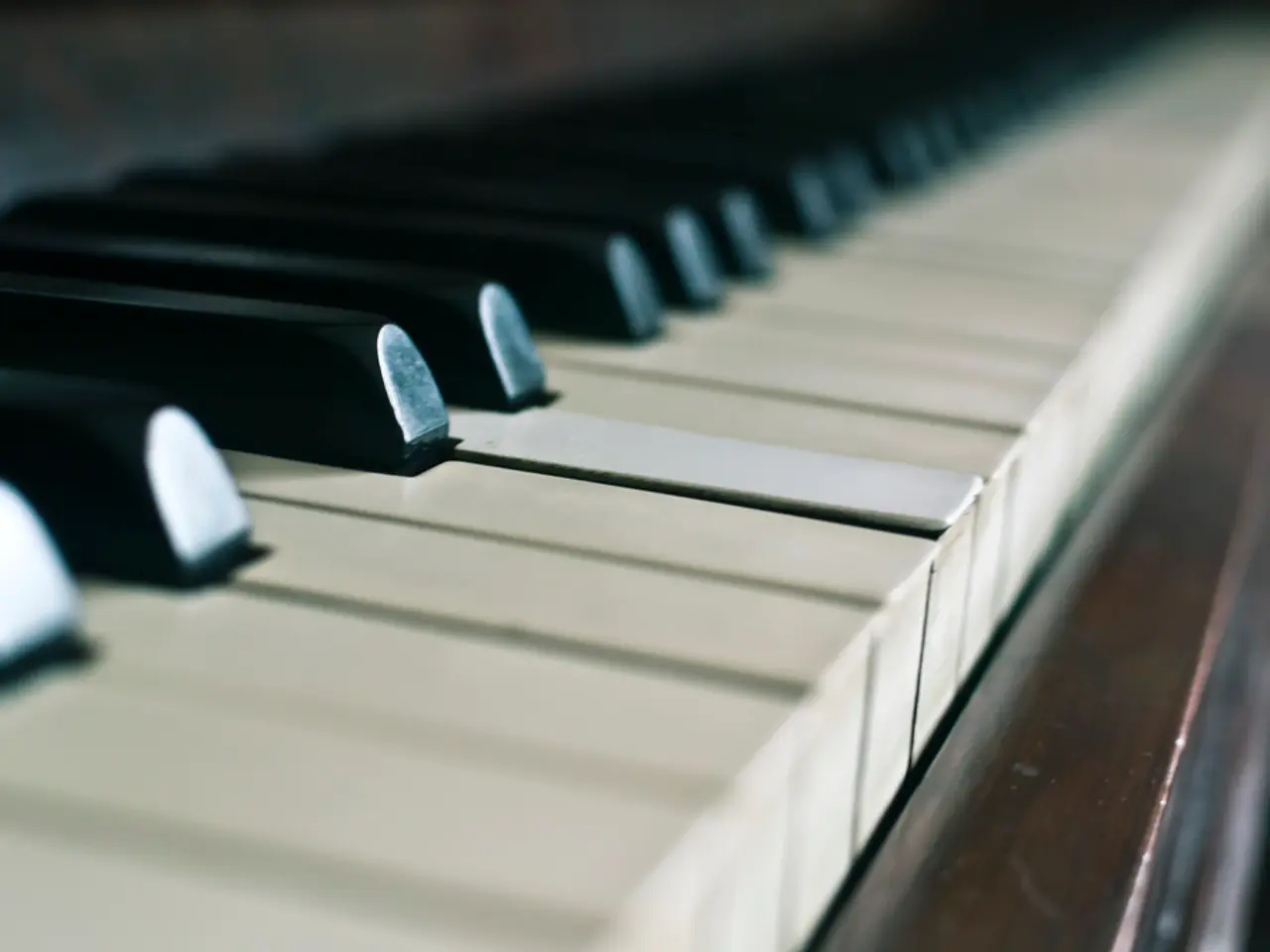Exploring diverse ways classical music enhances athletic performance in sports
Michelle Agyemang, a member of England's soccer team, has brought her piano to the Euro 2025 final, joining a growing list of athletes who use classical music for performance enhancement. From gymnasts training to Chopin to runners finding their rhythm in Beethoven's symphonies, the use of classical music in sports is gaining traction.
However, scientific evidence on classical music improving sports performance is limited and nuanced.
Balance
While there is no direct, robust scientific evidence specifically linking classical music to improved balance during sports activities, a study examining rhythm and movement synchronization found that musical features like tempo and beat influence motor synchronization accuracy. This suggests that musical training, which often includes exposure to classical music, might enhance motor control and timing, potentially benefiting balance, though this was not tested explicitly with classical music in sport contexts.
Mental Focus
Research indicates that music, including classical, can affect mental arousal and mood, which are important for mental focus. A meta-analysis reveals that classical music may cause small, temporary improvements in cognitive performance related to spatial reasoning, mainly due to enhanced mood and arousal rather than a direct cognitive boost. The key is emotional and attentional engagement rather than the music type per se. Personalized music choices increase mental activation more effectively than generic music or silence, supporting focus by masking unpleasant sensations during exercise.
Perceived Effort
New research shows that self-selected music increases power output and endurance during exercise by raising mental arousal and helping block out fatigue signals. While this study focused on athletes listening to favourite songs (not exclusively classical music), it indicates that engaging music can reduce perceived effort and enhance performance.
Summary
- Classical music may aid in mental focus indirectly via mood and arousal enhancement rather than specific inherent properties of the music.
- Rhythm and tempo aspects of music can influence motor synchronization and potentially balance-related movements, but direct evidence for classical music improving balance in sports is lacking.
- Music that personally engages the listener—even beyond classical music—can reduce perceived effort and improve exercise endurance and power output.
Thus, scientific support for classical music specifically is modest; benefits likely arise from general music-induced mood and attentional states and personal engagement rather than classical music’s unique effects. No definitive evidence confirms classical music as superior to other music genres in enhancing balance or perceived effort in athletic performance.
Despite the limited scientific evidence, classical music has been shown to improve sports performance. Winning outcomes and improved subjective performance assessments are often associated with athletes experiencing flow. Manchester City footballer Nathan Aké is one of the athletes who plays the piano. More and more studies have explored the effect of classic music on athletic performance over the years.
The study from Wrocław University School of Physical Education suggested that classical music not only improved movement control but helped gymnasts feel more emotionally grounded while training. A 2021 study by The Independent explored how runners use classical music, including pieces by Holst, Beethoven, and Tchaikovsky, to stay focused and connected during training. Slower pieces like Ravel's Boléro and certain piano nocturnes can help warm up the body or wind down after a session.
A study published in the International Journal of Social Science and Humanities (2023) found that listening to classical music while exercising improved motivation, lowered fatigue, and enhanced mental focus. Classical music can provide psychological, physiological, and emotive fuel for athletes, whether they are preparing for a match or just going for a run.
Listening to classical music during exercise can make the effort feel easier due to a lower perceived exertion. Research suggests that classical music can help regulate nerves, boost balance, reduce perceived effort, and foster team cohesion for athletes. A 2023 study from Wrocław University School of Physical Education found that young female gymnasts who trained to classical music over a six-week period showed improved balance, better mood, and lower perceived effort compared with a control group who trained in silence.
The feeling of being completely in the zone, where movement feels effortless and time seems to stretch, is often referred to as a "flow state" by psychologists. Classical music has been linked to enhancing team cohesion in athletes. Hayato Sumino plays virtuosic Ravel Boléro on two pianos.
In conclusion, while the scientific evidence is not conclusive, the anecdotal evidence and personal experiences of athletes suggest that classical music can have a positive impact on sports performance. Whether it's Michelle Agyemang bringing her piano to the Euro 2025 final or Nathan Aké playing the piano before a match, the use of classical music in sports is a trend that is likely to continue.
- Musicians like Hayato Sumino performing virtuosic pieces, such as Ravel's Boléro, may help foster team cohesion among athletes during training, according to anecdotal evidence.
- Classical music's potential benefits for sports performance are not confined to classical music alone; personalized music choices that emotionally engage the listener can lower perceived effort and enhance exercise endurance, as research indicates.







